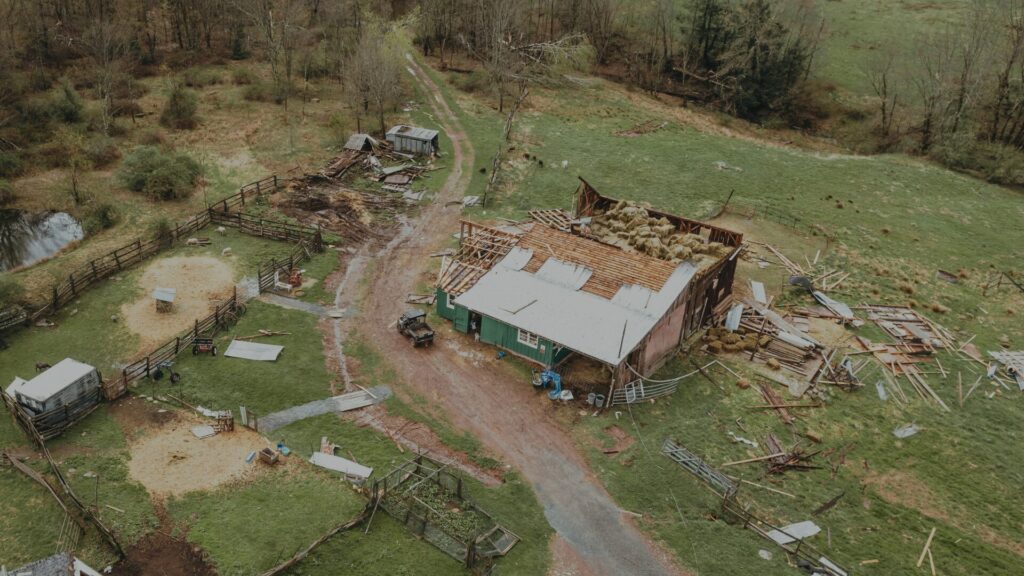As a homeowner, bad weather and storms are a risk to safeguarding your investment.
Roof damage, whether from severe weather, falling debris, or wear and tear, can lead to significant repair costs and potential structural issues. When dealing with such damage, understanding your responsibilities, particularly the cooperation clause in your insurance policy, becomes helpful.
In Texas, property owners face unique challenges when filing insurance claims for roof damage or other types of property damage. Insurance companies often impose strict cooperation clauses, making it necessary for you to comply or else you face a potential claim denial.
Going through the intricacies of insurance claims can be daunting due to strict cooperation requirements. A roof damage lawyer can be your greatest ally, ensuring you navigate the complexities of insurance policies correctly and get the compensation you deserve.
Our purpose is to provide you with insights on how to fulfill your obligations and secure your rightful compensation. Let’s dive into the following topics:
- Understanding the cooperation clause in your insurance policy
- Common pitfalls to avoid during the claims process
- Strategies to ensure a successful insurance claim outcome
- How a roof damage lawyer can assist you in meeting your responsibilities
Understanding the Cooperation Clause with a Roof Damage Lawyer
The cooperation clause is a part of most insurance policies. It obligates you to assist the insurance company during the claims process. This can include providing information, attending interviews, and allowing inspections.
For homeowners, understanding this clause is crucial when making a claim. Non-compliance can lead to denied claims or reduced payouts.
Insurance policies often use legal jargon that can be difficult to decipher. A lawyer can help you interpret these terms and understand your responsibilities. This ensures that you are fully compliant with your policy’s requirements.
Moreover, the cooperation clause is designed to prevent fraud and ensure that claims are legitimate. By complying, you help the insurer verify your claim, speeding up the process. This, in turn, can lead to quicker repairs and less disruption to your life.
Common Pitfalls in the Claims Process
When dealing with insurance claims, many property owners make mistakes that can jeopardize their claims. One common error is missing deadlines for submitting documents. Insurance policies typically have strict timelines that must be adhered to.
Another common pitfall is providing incomplete or inaccurate information. This can lead to delays or even claim denials.
Failure to document the damage properly is another issue. Photographs, videos, and written descriptions are critical in supporting your claim. Without proper documentation, the insurance company may dispute the extent of the damage.
Not cooperating fully with the insurance adjuster is another common mistake. This includes failing to attend scheduled inspections or refusing to answer questions.
Stormlex Tip: See our article here on documenting damage to ensure you are submitting all the required info and avoid insurance companies to delay resolving your claim
Strategies for a Successful Insurance Claim Outcome with a Roof Damage Lawyer
To ensure a successful insurance claim outcome, it is important to follow a strategic approach.
The sooner you notify your insurance company after the storm, the better. Provide all requested information promptly and accurately. This includes responding to inquiries and submitting documents by the specified deadlines.
It is also important to understand the terms of your insurance policy. Make sure you know what is covered and any exclusions or limitations.
Another key strategy is to maintain open and honest communication with your insurer. If you encounter any issues or delays, inform the insurer immediately. This can help prevent misunderstandings and demonstrate your willingness to cooperate.
Lastly, if your claim is denied, consider seeking legal advice early in the process. An experienced roof damage lawyer can provide guidance and support from the outset. This can save you time and increase the likelihood of a favorable outcome.
How a Roof Damage Lawyer Can Assist
At Stormlex Law Group we can help you understand if your insurance company’s resolution is within the lines of your policy or not.
Legal guidance can be incredibly beneficial when dealing with a denied insurance claim. We can provide peace of mind and reduce the stress associated with a claim
If your claim is denied, we can help you appeal the decision. Having a lawyer present can help ensure that the process is fair and that your rights are protected. We can review the reasons for the denial and advise on the best course of action. This can involve negotiating with the insurer or, if necessary, pursuing litigation.
Moreover, Texas law allows insurers to use various defenses to deny claims. This includes arguing that the damage was caused by wear and tear or lack of maintenance. A roof damage lawyer can help you counter these arguments and protect your rights.
In addition, the high volume of claims after a major storm can lead to delays. Insurers may be overwhelmed with claims, leading to slower processing times. We can help expedite the process and ensure that your claim is handled promptly.
Understanding the cooperation clause and other policy requirements is important for successful insurance claims. Avoiding common errors and seeking legal guidance can increase the likelihood of a favorable outcome.
You can protect your investment and ensure that your insurance claims are handled properly. Don’t go through the complexities of insurance claims alone—consider consulting one of our damage lawyers to safeguard your rights and interests!
Stormlex Law Group
Stormlex Law Group is sharing weekly videos that break down insurance policy terms and why they matter, tips for navigating the claims process more effectively, and all things Texas insurance law related.
If you reside in San Antonio, Dallas, Austin or another Texas city, be sure to give us a follow so that you know your property rights as a policyholder in Texas!
Photo by Samuel Han on Unsplash



















